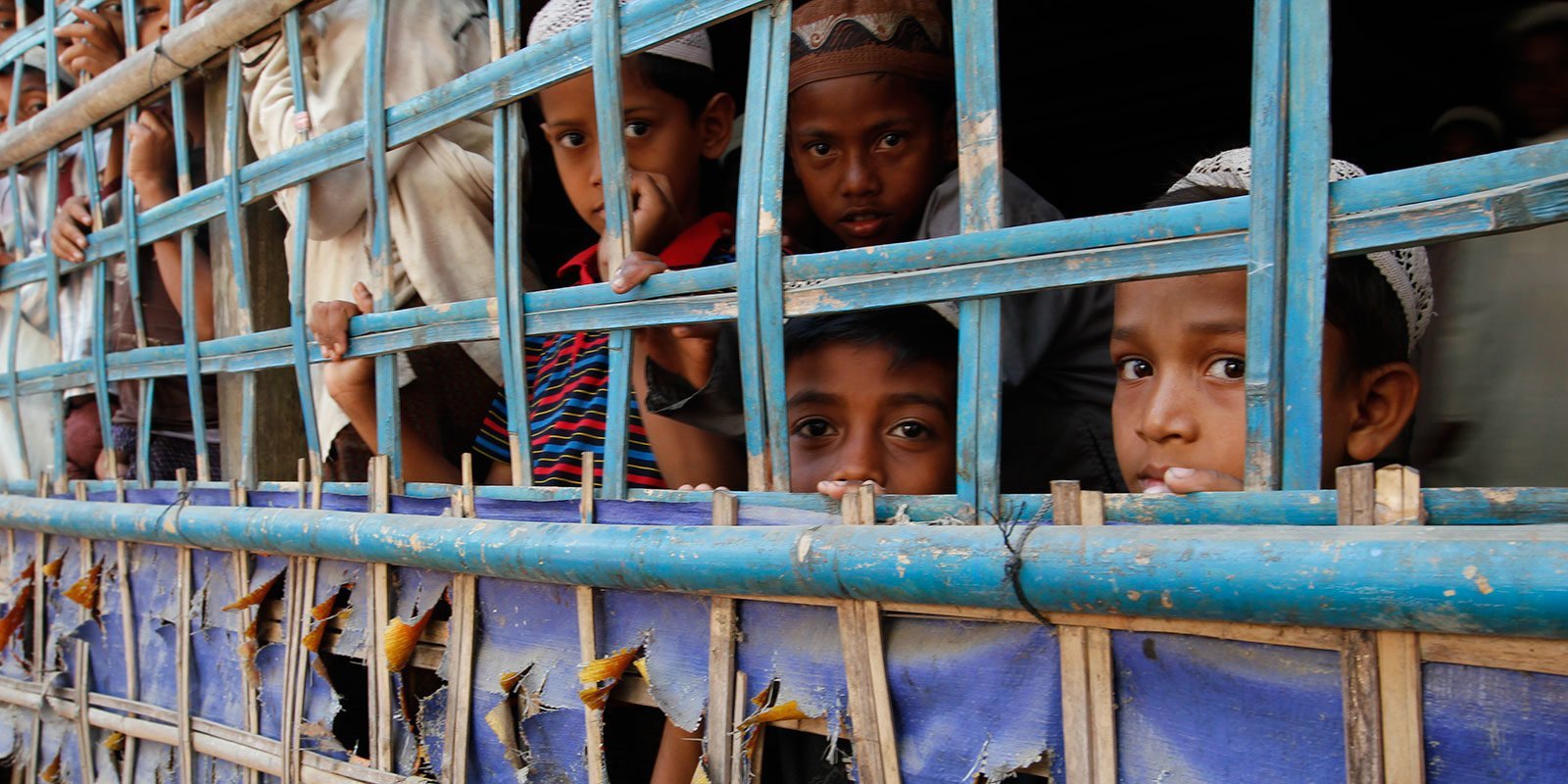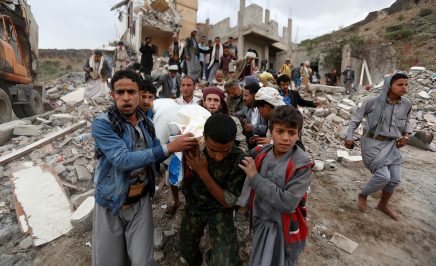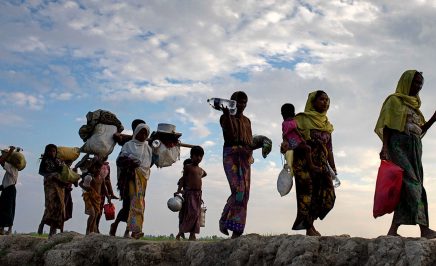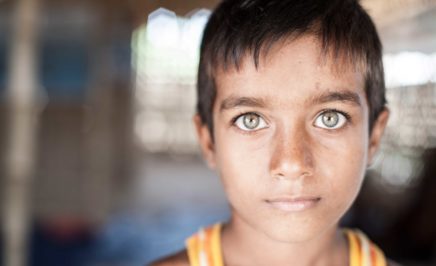Bangladesh and Myanmar authorities must immediately halt plans to send Rohingya refugees back to Rakhine State, and Australia must cease its training and support to the Myanmar military who are continuing to commit crimes against humanity today, Amnesty International has said.
A first wave of organised returns could begin as soon as today (15 November), following the announcement of a bilateral agreement between Bangladesh and Myanmar last month which falls short of international obligations.
“This is a reckless move which puts lives at risk,” said Nicholas Bequelin, Amnesty International’s Regional Director for East and Southeast Asia.
“These women, men and children would be sent back into the Myanmar military’s grasp with no protection guarantees, to live alongside those who torched their homes and whose bullets they fled.”
Amnesty International Australia’s Rohingya Rights campaigner Diana Sayed, added: “The Australian Government must cut Australia’s training support to the Myanmar military. That Australian taxpayers’ money continues to support human rights violators is unthinkable.”
“The Australian Government must cut Australia’s training support to the Myanmar military. That Australian taxpayers’ money continues to support human rights violators is unthinkable” – Amnesty International Australia’s Rohingya Rights campaigner Diana Sayed
High risk of forced returns
On 30 October, representatives of the Bangladesh and Myanmar governments announced they had agreed to start repatriation of some of the more than 720,000 Rohingya refugees who have fled to Bangladesh from Myanmar since August 2017.
Under the agreement, 2,260 people – 485 families – are being ‘vetted’ by UNHCR for their potential return in a first round of repatriations, slated to begin this week.
The announcement has heightened fear in the camps. Refugees were not consulted, and it remains unclear if they consented to their names being on the list for repatriation. Last week a Rohingya man attempted suicide after learning that his family was among those due to return. Others believed to be on the list are reported to have gone into hiding or potentially planning onward and dangerous travel by boat to Southeast Asia.
“The lack of transparency surrounding this process is appalling. A population traumatised by Myanmar’s deadly campaign is now terrified of what their future holds – and where,” said Nicholas Bequelin.
“Returns at this time cannot be safe or dignified and would constitute a violation of Bangladesh’s obligations under international law. No government donor should be supporting a repatriation process that threatens Rohingyas’ lives and liberty.”
The forcible return of refugees violates the principle on non-refoulement, an absolute prohibition in international treaties and customary international law on returning people to a territory where they could face a risk to their lives or other serious human rights violations.
“Bangladesh has generously welcomed Rohingya people and given them refuge. Regardless of any repatriation process, the world looks to Bangladesh’s leadership in keeping its borders open to refugees fleeing crimes against humanity in Myanmar,” Nicholas Bequelin said.
The Bangladesh government has also asserted that only refugees whom UNHCR have found to have expressed a genuine wish to return will be doing so.
“Any Rohingya refugee who genuinely wishes to return to Myanmar has the right to do so, and UNHCR are playing an important role in establishing this,” said Nicholas Bequelin.
“But to be truly voluntary, refugees need alternatives – including to remain in Bangladesh with asylum protections and to resettle in a third country. And crucially, Rohingya refugees must play a central part in any decision over their future.”
“Refugees need alternatives – including to remain in Bangladesh with asylum protections and to resettle in a third country. And crucially, Rohingya refugees must play a central part in any decision over their future” – Nicholas Bequelin, Amnesty International’s Regional Director for East and Southeast Asia
Ongoing crimes in Rakhine State
In Rakhine State, little has changed on the ground to make returns safe or dignified. Hundreds of thousands of Rohingya continue to live under a system of apartheid, confined to squalid camps and villages. They cannot move freely, with severely limited access to schools and hospitals. The security forces responsible for atrocities have yet to be held to account.
“In Rakhine State, crimes against humanity continue today. Returning refugees to a place where their rights will be routinely violated and where their lives will be at constant risk is unacceptable – and unconscionable,” Nicholas Bequelin said.
The Myanmar authorities continue to impose severe restrictions on access to northern Rakhine State. Only a handful of UN agencies and international organisations are able to operate in the area and access for independent media has been limited to tightly controlled government-organised tours.
“Northern Rakhine State today is an information black hole. Without international oversight, it will be extremely difficult to monitor the situation of anyone who returns,” said Nicholas Bequelin.
“Rohingya still living in Rakhine State are in urgent need of protection. If the Myanmar authorities are serious about creating conditions for safe, voluntary and dignified returns, they must allow aid workers and human rights monitors full, unfettered and sustained access to the area.”





